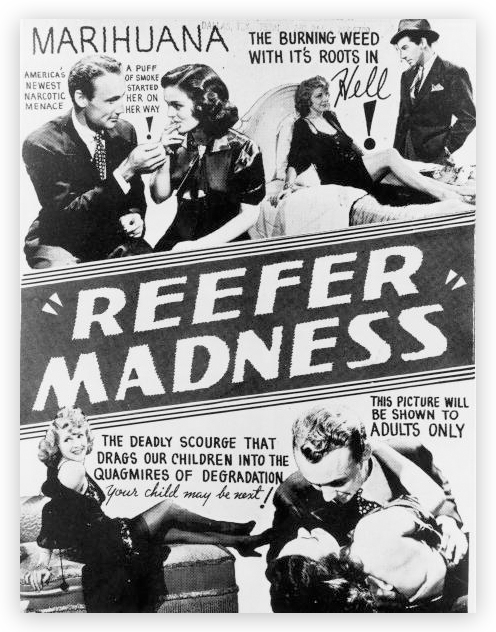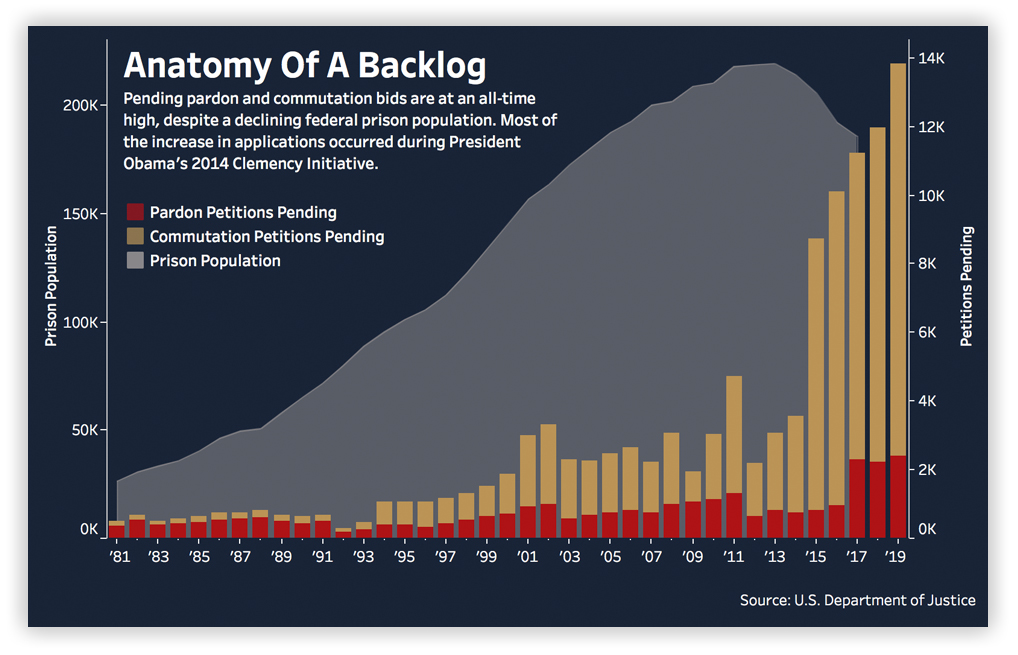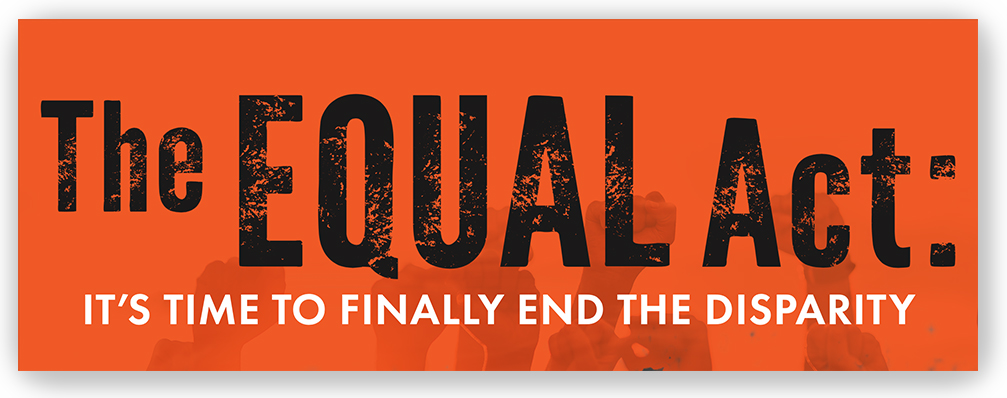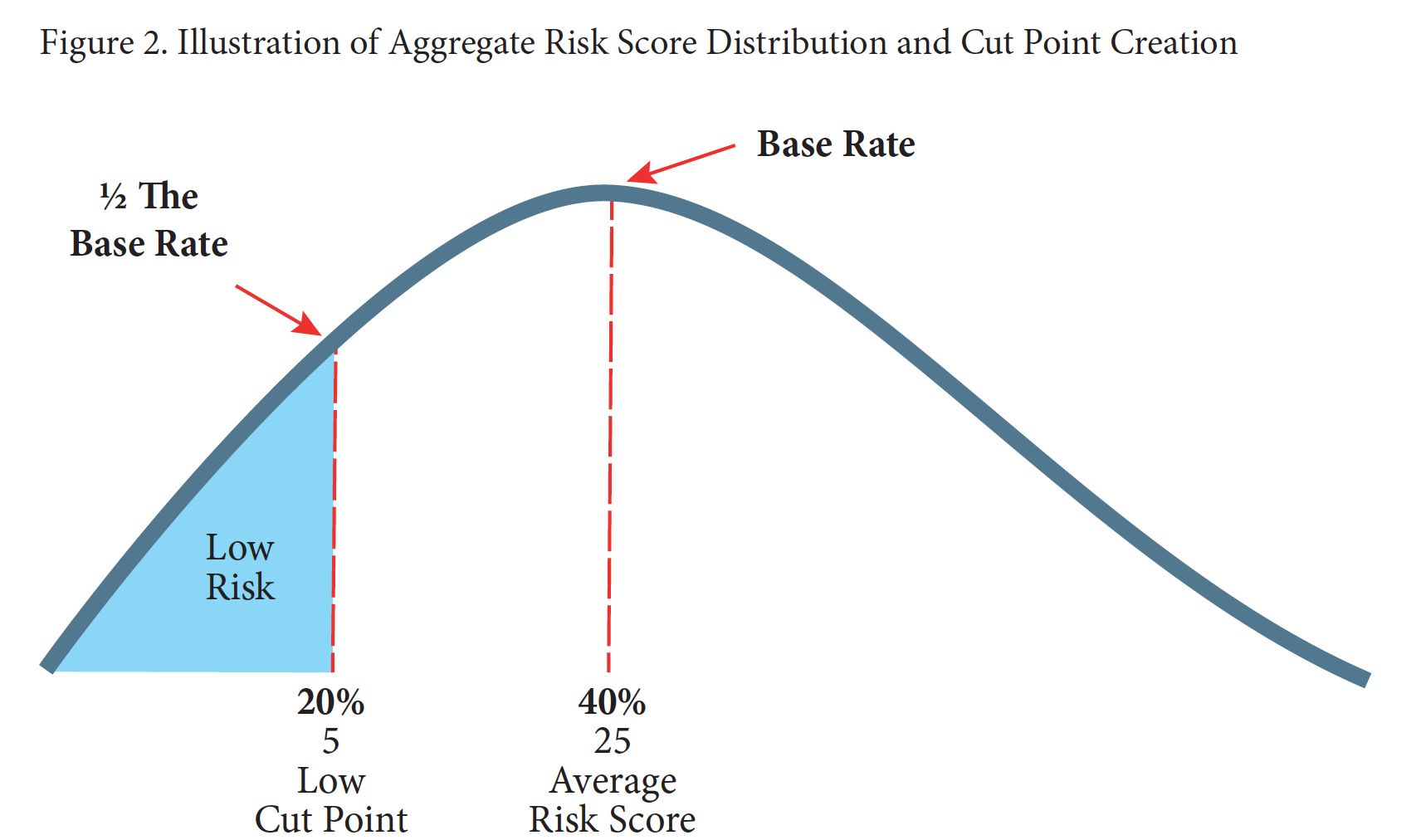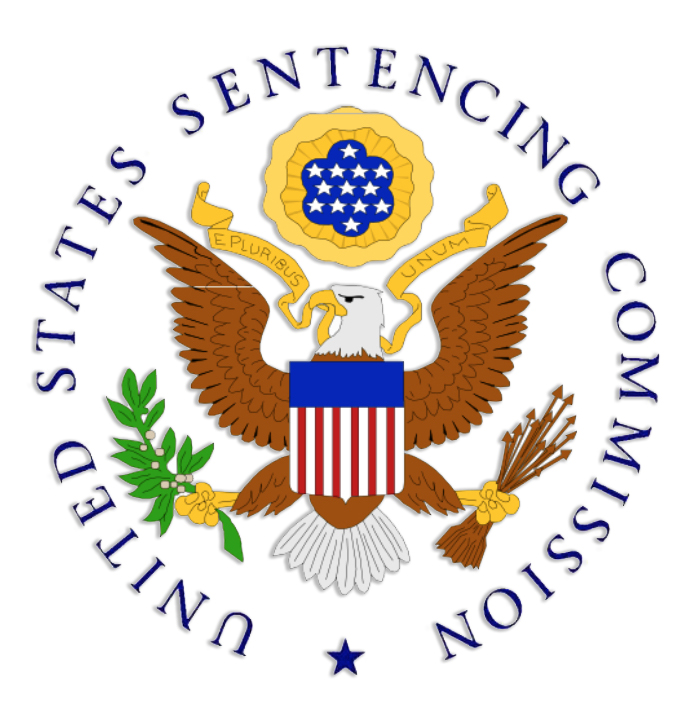We post news and comment on federal criminal justice issues, focused primarily on trial and post-conviction matters, legislative initiatives, and sentencing issues.

BIDEN GRANTS CLEMENCY TO 75 PRISONERS
 President Biden’s announcement of three pardons and 75 commutations last Tuesday receive the expected accolades from the media, which generally like anything Biden does and – in this case – were undoubtedly relieved that no one on the list appeared to be a friend of Joe, a friend of a friend of Joe, or a favored cause of some celebrity who had booked private time with Joe.
President Biden’s announcement of three pardons and 75 commutations last Tuesday receive the expected accolades from the media, which generally like anything Biden does and – in this case – were undoubtedly relieved that no one on the list appeared to be a friend of Joe, a friend of a friend of Joe, or a favored cause of some celebrity who had booked private time with Joe.
The press, if not the public, is still suffering from a little PTSD (“Post-Trump Stress Disorder”). It is somewhat of a relief to see clemency not being used as a political carrot or to be scoring cheap political points.
USA Today said, “The individuals granted clemency came at the recommendation of the Department of Justice’s pardon attorney, according to senior Biden administration officials who briefed reporters about the announcement. It marks a return of a practice that was largely bypassed by former President Donald Trump, whose clemency requests often came through close aides.”
A return to normalcy? Maybe. Not a political act? “Not so fast!” Lee Corso might say.
Filter magazine reported that “Biden’s move appears to be the result of lobbying from a celebrity-connected network of clemency activists, such as Weldon Angelos, a former cannabis prisoner who counts Snoop Dogg among his friends. It carries over a troubling Trump trend for this unique and in practice, arbitrary, presidential power: People with celebrity backing are more likely to receive mercy, while others who are similarly situated don’t.”
 Recall that the White House said last year that Biden was reforming clemency, and would start granting pardons and commutations in the fall of 2022. So what happened? As CNN explained, President Joe Biden decided to mark “Second Chance Month” by “commuting the sentences of 75 people serving time for nonviolent drug offenses, issuing full pardons for three individuals who the administration says have worked toward rehabilitation and unveiling new actions aimed at easing the transition back to normal life for the formerly incarcerated.” The New York Times said, “Mr. Biden’s top aides described the use of presidential power as part of a broader strategy to overhaul the criminal justice system by relying less on prison to punish nonviolent drug offenders and using employment programs to help prevent the formerly incarcerated from returning to prison.”
Recall that the White House said last year that Biden was reforming clemency, and would start granting pardons and commutations in the fall of 2022. So what happened? As CNN explained, President Joe Biden decided to mark “Second Chance Month” by “commuting the sentences of 75 people serving time for nonviolent drug offenses, issuing full pardons for three individuals who the administration says have worked toward rehabilitation and unveiling new actions aimed at easing the transition back to normal life for the formerly incarcerated.” The New York Times said, “Mr. Biden’s top aides described the use of presidential power as part of a broader strategy to overhaul the criminal justice system by relying less on prison to punish nonviolent drug offenders and using employment programs to help prevent the formerly incarcerated from returning to prison.”
I agree with Ohio State University law professor Doug Berman, who said in his Sentencing Law and Policy blog that “though I am still a bit salty that it took Prez Biden 15+ months in office before using his clemency pen, I am pleasantly surprised to see a large number of grants and many commutations to persons serving lengthy terms for drug offenses.” Prof Berman noted what I too thought was an anomaly: 40% of the commutation recipients were female. Only about 7% of the BOP inmate population are women.
Other interesting numbers: While the clemencies were widely seen as addressing marijuana convictions, this was not the case at all. Only 7% of the commutations were for a marijuana-only offense, and 12% for offenses that included marijuana. However, 40% of the commutations were for offenses involving methamphetamines, 28% involved cocaine powder, 12% involved crack, and 5% involved heroin. The meth number is especially interesting, in that Congress has shown not just uninterest, but outright hostility to meth offenses. (In the First Step Act, for example, methamphetamines, and heroin are singled out for exemption from eligibility for earned time credits under some circumstances).
Notably, no one who got a commutation had any fentanyl on his or her case.
While Biden noted that “many” of the people receiving commutations “have been serving on home confinement during the COVID-pandemic,” two inmates serving life and one whose life sentence was cut to 240 months in 2014 were among the commutation grants.
Still, this appears to be a nice start. Seventy-five of the 18,000+ clemency petitions on file have been granted. The White House has hinted that more is to come. So why am I complaining?
 It’s just this: The New York Times reported that “Mr. Biden based his decisions on clemency petitions sent to the Justice Department, which then made recommendations to the president, according to the White House.” On the campaign trail, Biden promised sweeping changes to criminal justice, including clemency. Previously, we had seen promising signs that Biden was going to cut the Dept of Justice out of the clemency process. DOJ prosecuted and locked up the prisoners to begin with. Having DOJ serve as the gatekeeper for clemency – an act of political grace, not a legal process – is akin to putting the fox in charge of selecting chickens to be released from the henhouse.
It’s just this: The New York Times reported that “Mr. Biden based his decisions on clemency petitions sent to the Justice Department, which then made recommendations to the president, according to the White House.” On the campaign trail, Biden promised sweeping changes to criminal justice, including clemency. Previously, we had seen promising signs that Biden was going to cut the Dept of Justice out of the clemency process. DOJ prosecuted and locked up the prisoners to begin with. Having DOJ serve as the gatekeeper for clemency – an act of political grace, not a legal process – is akin to putting the fox in charge of selecting chickens to be released from the henhouse.
Now, about a year after Biden promised a review and possible restructuring of the clemency process, we’re back to the same-old-same-old. I’m not disappointed for the 75 who got clemency… just the 18,000 left behind.
White House, Clemency Recipient List (April 26, 2022)
USA Today, Biden pardons three felons, commutes sentences of 75 others, in first use of clemency powers (April 26, 2022)
CNN, Biden will commute or pardon sentences of 78 non-violent people. Here are a few to know (April 26, 2022)
The New York Times, Biden Uses Clemency Powers for the First Time (April 26, 2022)
Sentencing Law and Policy, Prez Biden finally uses his clemency pen to grant three pardons and 75 commutations (April 26, 2022)
Marijuana Moment, Biden’s first act of cannabis clemency (April 27, 2022)
Filter, Biden’s Clemency Announcement Falls Far Short (April 27, 2022)
– Thomas L. Root


 Biden finally issued pardons to six people last Friday, four for various low-level drug offenses, one for the illegal sale of whiskey, and one to an 80-year-old woman who killed her husband 47 years ago. Three of the crimes had occurred at least a quarter century ago, and the fourth – an Air Force enlisted man convicted of taking (but not distributing) Ecstasy – happened about 20 years ago.
Biden finally issued pardons to six people last Friday, four for various low-level drug offenses, one for the illegal sale of whiskey, and one to an 80-year-old woman who killed her husband 47 years ago. Three of the crimes had occurred at least a quarter century ago, and the fourth – an Air Force enlisted man convicted of taking (but not distributing) Ecstasy – happened about 20 years ago. Two years into Biden’s Administration, the theme of his clemency policy seems to be that pardons will issue, favoring very simple drug and politically-preferred offenses, when the crime happened a long time ago. Commutations – which require actually letting people out of prison – seem to be disfavored by this White House.
Two years into Biden’s Administration, the theme of his clemency policy seems to be that pardons will issue, favoring very simple drug and politically-preferred offenses, when the crime happened a long time ago. Commutations – which require actually letting people out of prison – seem to be disfavored by this White House.


 That’s right… to no one.
That’s right… to no one.
